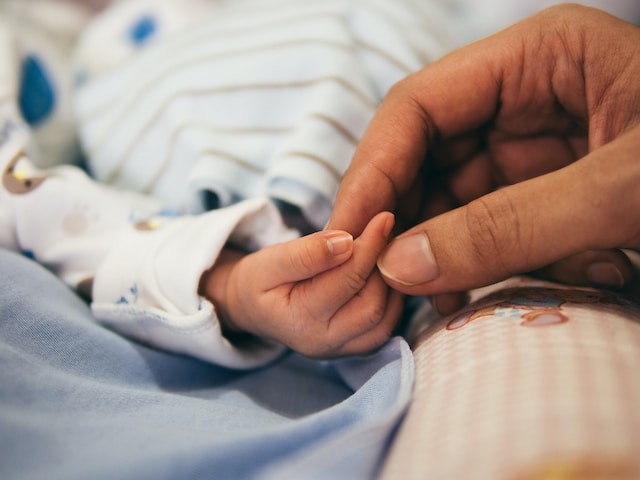Unlocking the Wonders of Development: Discovering the First Sense a Baby Develops

The journey of human development is a marvel of nature, beginning even before a child is born. Among the most fascinating aspects of this journey is the development of the senses, which connect us to the world around us. Understanding which sense a baby develops first offers a glimpse into the intricate process of human growth and the early stages of sensory development.
The First Sense: Touch
The consensus among developmental scientists is that the sense of touch is the first sense that babies develop. This sense starts to form in the womb as early as 8 weeks of gestation. The development of touch begins with the baby's face, particularly around the mouth, and then spreads to the hands and feet. By around 12 to 15 weeks, a fetus can respond to touch on other parts of its body.
Touch plays a crucial role in early development. It is through touch that a baby first learns about its environment. In the womb, the fetus experiences touch as it encounters its own body and the uterine wall. After birth, touch continues to be a primary way for babies to explore the world and bond with their caregivers. The skin-to-skin contact between a baby and a parent, known as kangaroo care, can have profound effects on the baby's physical and emotional development.
The sense of touch is integral to the bonding process between a baby and its parents. Physical contact, such as cuddling, hugging, and skin-to-skin contact, helps to establish a sense of security and attachment. This bonding is crucial for emotional development and has been shown to impact a child's social and emotional growth well into adulthood.
Moreover, touch stimulates the brain, encouraging neural growth and development. This stimulation is vital for cognitive development, including learning and memory. The comforting sensation of touch also helps to regulate a baby's stress and can even influence how they respond to stress later in life.
Read Also: 16 Weeks Pregnant: Baby Development and Mom Symptoms
Sensory Integration and the Development of Other Senses
While touch is the first sense to develop, the other senses follow closely behind. The sense of taste and smell begins to develop around the 13th to 15th week of pregnancy. Babies can taste and smell the amniotic fluid, which is influenced by the mother's diet, potentially shaping their taste preferences after birth.
Hearing develops around the 18th week of gestation. Babies in the womb can hear muffled sounds from the outside world, including their mother's voice, which can be soothing and recognizable after birth.
Sight is the last sense to fully develop. While babies can perceive light and shapes in the womb, their vision is limited. After birth, their vision rapidly develops, but it takes several months for them to see the world as clearly as an adult.
The development of the senses is a critical part of early human growth, with touch being the foundational sense that paves the way for the development of other sensory experiences. This early sensory development plays a significant role in shaping a child's future physical, cognitive, and emotional health.
By understanding and nurturing these early stages of development, parents and caregivers can provide a supportive environment that fosters a child's overall well-being and growth. As we continue to explore and understand the wonders of human development, we gain valuable insights into the remarkable journey that begins in the womb and continues throughout life.
Related Article: Cluster Feeding and Growth Spurts: Navigating Your Baby's Developmental Milestones
© 2024 ParentHerald.com All rights reserved. Do not reproduce without permission.
